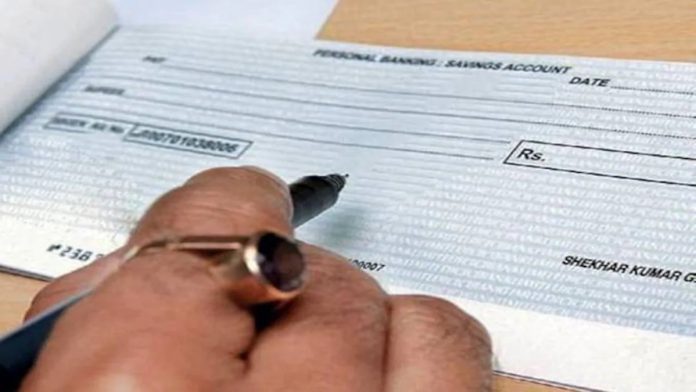Cheque Bounce Rules: The Supreme Court has accepted the recommendation of setting up a special court for speedy disposal of Cheque bounce cases. In this regard, the response of the High Courts of five states has been sought.
Cheque Bounce Rules: There seems to be a way for speedy disposal of Cheque bounce cases. The Supreme Court has accepted the recommendation of the Expert Committee on this matter to create special courts. A three-judge bench of Justices L Nageswara Rao, BR Gavai and S Ravindra Bhat said that special courts under the Negotiable Instruments Act (NI) would be set up in the states of Maharashtra, Delhi, Gujarat, Uttar Pradesh and Rajasthan, with regard to these states. Reply of 5 High Courts has been sought.
33 lakh cases of Cheque bounce pending
The Supreme Court has accepted the recommendations of the Special Courts in the Cheque bounce cases of the Expert Committee. For this, reply has been sought from 5 High Courts on the formation of special courts. The committee suggested that special courts should be set up for speedy disposal of Cheque bounce cases. There are over 33 lakh Cheque bounce cases pending across the country.
The committee advised to set up courts in these states
The Special Committee has suggested setting up of Special Pilot Courts in Maharashtra, Gujarat, Rajasthan, Delhi and UP. At the same time, it has also been suggested to create a national portal for information of summons. The committee was of the opinion that if needed, a retired judicial officer can be appointed for this. According to the Expert Committee, about Rs 127 crore will be spent for the new court and 1826 judicial officers will have to be recruited.
Punishment for Cheque bounce
In any case, if payment is not made even after 15 days notice of Cheque bounce, then there is a provision of punishment. Imprisonment of not more than two years and or fine which may extend to twice the amount, or with both. The Finance Ministry had earlier sought suggestions on making Cheque bounce non-criminal. It was opposed by a large number of business class.
Top 5 states in Cheque bounce cases
State Cases Pending
Maharashtra 5,60,914
Rajasthan 4,79,774
Gujarat 4,37,979
Delhi 4,08,992
Uttar Pradesh 2,66,777
(As on 13 April 2022)
What is the rule
Cases related to Cheque bounce are heard under section 138 of the Negotiable Instruments Act. According to the law, the Cheque bounce case has to be settled within 6 months. But often in these cases it takes 3-4 years. The Finance Ministry had proposed to convert the cases related to Cheque bounce into a civil case, which was shelved after heavy protests from the traders.
People’s suggestions
99 percent of the people had expressed their opinion against converting Cheque bounce cases into civil cases. People did not want it to be converted into a civil case. Most of the suggestions against the proposal came from MSMEs. The traders claimed that if the fear of jail was over, people would not care about the rules. Due to which banks and NBFCs will also suffer a big loss.
What are the rules abroad?
America
Both civil and criminal in different states
Fine up to 2-3 times/1-10 years in jail, both rules
Punishment depends on the amount, how many times the bounce case
United Kingdom
Only civil cases are made and not criminal cases.
Cheque amount, interest thereon and recovery charges
Australia
Only a civil case is made, not a criminal case.
Cheque amount, interest thereon and recovery charges
France
Only a civil case is made, not a criminal case.
If the default is repeated, the name goes to the database.
Then there is a ban on issuing Cheques for 5 years.
Singapore
Only a civil case is made, not a criminal case.
Cheque amount, interest and amount spent on collection
Dubai
Criminal and civil case both ways in Cheque bounce
The rule of fixed fine applies above the limit of fixed amount.
The rule of recovery of money even after the term of jail


